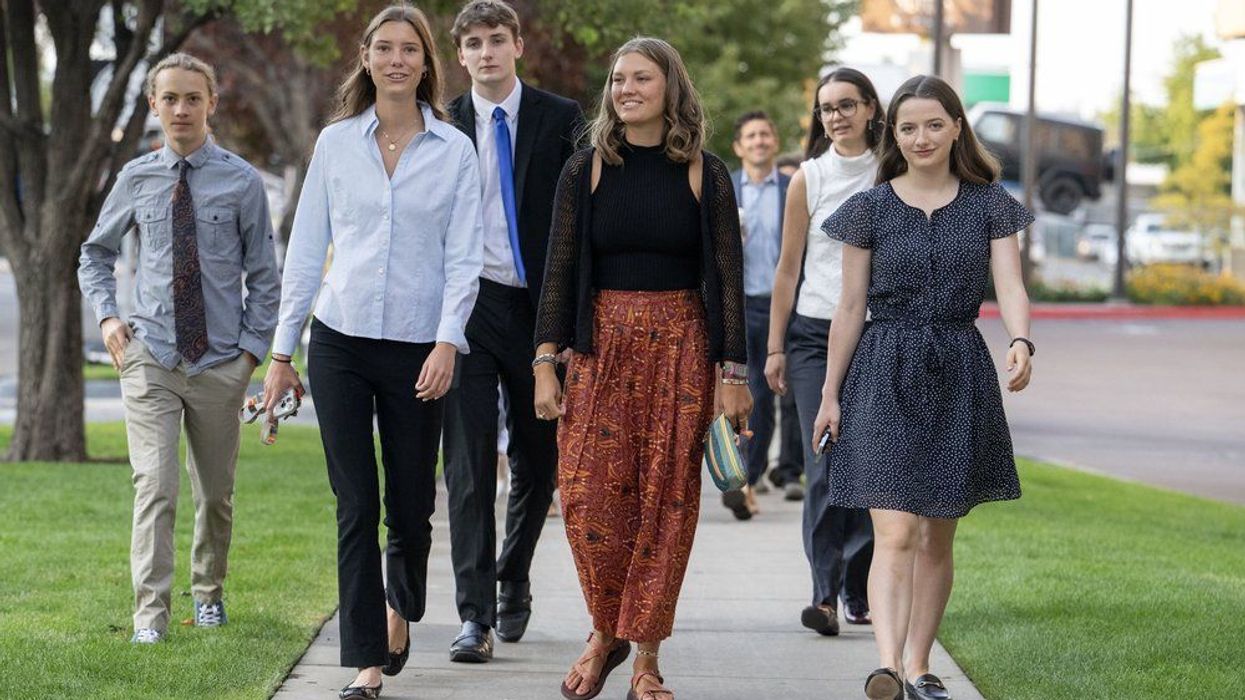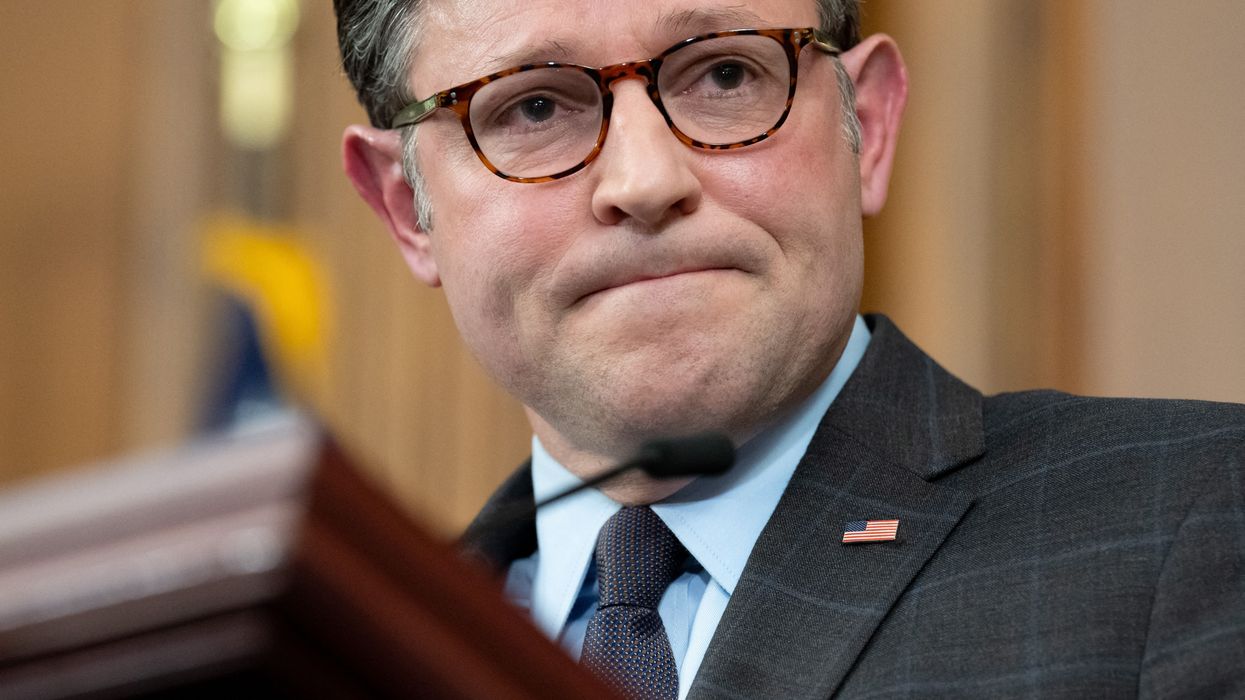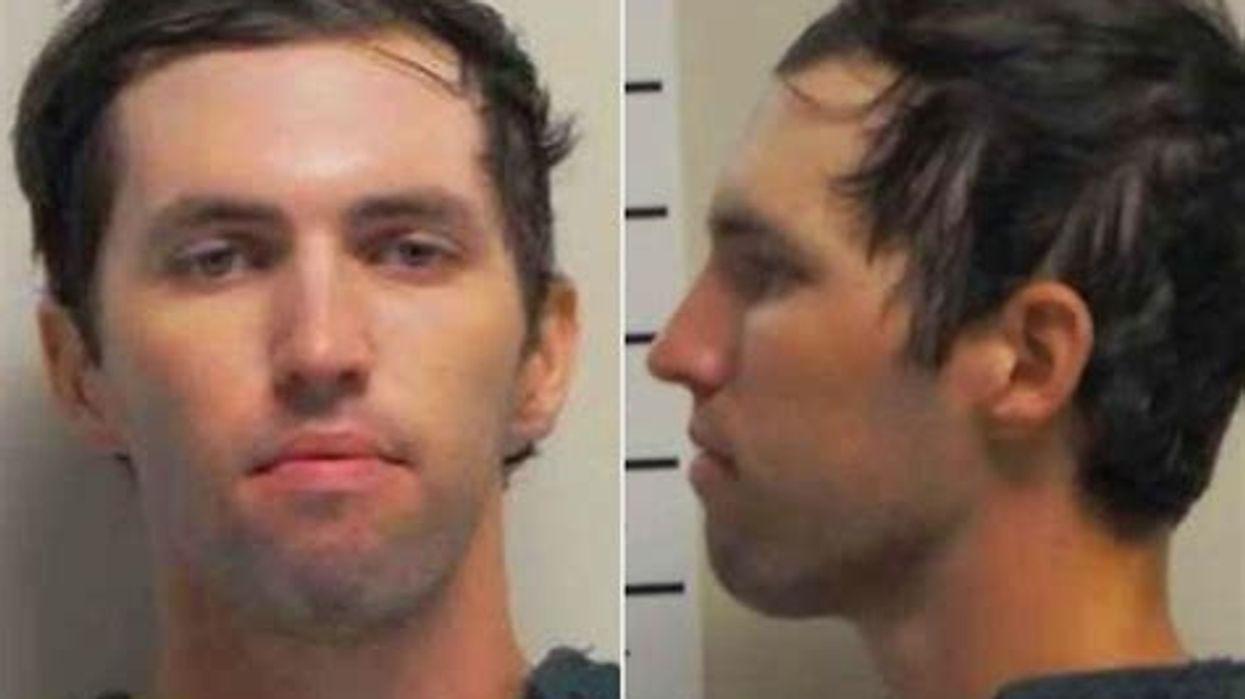'Fighting for Our Lives': Youth Sue to Block Utah Fossil Fuel Permits
"Some days I can't even go outside because the air is so polluted," said one plaintiff. "I get headaches, feel dizzy when it’s too hot, and sometimes I can't even see down my own street because of smoke from wildfires."
Following the Utah Supreme Court's dismissal of a youth-led constitutional climate lawsuit earlier this year, 10 young Utahns on Monday launched a new case intended to block state permits for coal, gas, and oil development.
Backed by Our Children's Trust—a legal group behind various youth climate suits, including Juliana v. United States and Held v. State of Montana—the plaintiffs are suing the Utah Board of Oil, Gas, and Mining; the Division of Oil, Gas, and Mining; and the director of the latter, Mick Thomas, in state court.
"Plaintiffs bring this action to protect their fundamental rights to life, health, and safety that defendants are violating by permitting fossil fuel development, when doing so is harmful, unnecessary, and more expensive than clean, renewable forms of energy," says the complaint.
"Due to localized air and climate pollution caused by defendants' permitting activities, plaintiffs live in some of the worst air quality of any state in the nation and face climate disruptions, including elevated temperatures and deadly heatwaves, frequent and severe wildfires and smoke, exceptional drought, exacerbated medical conditions, and increased health risks," the filing continues.
"Defendants' fossil fuel permitting challenged here is unconstitutional because it harms the health and safety of plaintiffs, interferes with their healthy development, and takes years off of their lives," the document adds.
When the Utah Supreme Court upheld the dismissal of the earlier lawsuit in March, Our Children's Trust called it a "partial win" because, as lead attorney Andrew Welle explained at the time, "the decision opens a clear path forward for continuing our challenge to the state's actions in promoting fossil fuel development."
🚨Ten Utah youth filed a constitutional climate lawsuit against their state for issuing fossil fuel permits that endanger their health, lives, and safety. Learn more: bit.ly/49LVqA0
[image or embed]
— Our Children’s Trust (@youthvgov.bsky.social) December 1, 2025 at 4:07 PM
The lead plaintiff for both cases is Natalie Roberts, an 18-year-old who lives in Salt Lake City. In April, the American Lung Association's annual State of the Air report gave the state capital's metro area an "F" grade for both ground-level ozone (smog) and particle (soot) pollution.
"Both ozone and particle pollution can cause premature death and other serious health effects such as asthma attacks, heart attacks and strokes, preterm births, and impaired cognitive functioning later in life. Particle pollution can also cause lung cancer," said Nick Torres, advocacy director for the American Lung Association, in a statement when the report was released.
"Unfortunately, too many people in the Salt Lake City metro area are living with unhealthy levels of ozone and particle pollution," Torres continued. "This air pollution is causing kids to have asthma attacks, making people who work outdoors sick and unable to work, and leading to low birth weight in babies. We urge Utah policymakers to take action to improve our air quality, and we are calling on everyone to support the incredibly important work of the US Environmental Protection Agency."
Roberts, in a Monday statement, shared her experiences with her city's polluted air and increasingly hot temperatures.
"Some days I can't even go outside because the air is so polluted," the teenager said. "I get headaches, feel dizzy when it's too hot, and sometimes I can't even see down my own street because of smoke from wildfires. I worry every day about my health, my future, and what kind of world I'll live in if the state keeps approving these fossil fuel permits. We're fighting for our lives and asking the court to protect us before it's too late."
The complaint details similar experiences by other plaintiffs. When 21-year-old Park City resident Sedona Murdock "is exposed to dangerous air quality, she experiences pain in her chest and lungs, difficulty breathing, and coughing, and it can trigger life-threatening asthma attacks," it says. "Sedona experiences stress and anxiety because of the harms to her health that she has already suffered."
Otis W. and Lev W., brothers from Salt Lake City who are respectively 16 and 13, "experience painful headaches from bad air quality and have often had days where their schools have not allowed them or their peers to go outside," according to the filing. "Increasingly intense rain events have resulted in flooding and water intrusion in Otis and Lev's home, threatening their shelter and presenting a risk of dangerous mold growth."
"Decreased snowfall, snowpack, precipitation, and warming temperatures are diminishing water sources that provide water for Otis and Lev's family and community, threatening their water security," the complaint says. "Several trees in Otis and Lev's yard that provided shade for their home have already died from increased heat and drought conditions, making their home hotter and increasing the dangers to them of rising temperatures and heatwaves."
The document also points out how the pair and other youth plaintiffs have had to alter or abandon beloved outdoor activities, from team sports such as soccer to camping, hiking, mountain biking, rafting, running, and skiing, because of the fossil fuel-driven climate emergency.
"The state cannot continue issuing fossil fuel permits that put children's lives and health in jeopardy," said Welle, the lead attorney. "This case is about holding Utah accountable to its constitutional obligations to protect youth from serious harm caused by air pollution, climate impacts, and unsafe fossil fuel development. The court now has what it says it needs to hear and decide this case and prevent further harm to these young people and ensure the state governs responsibly."


